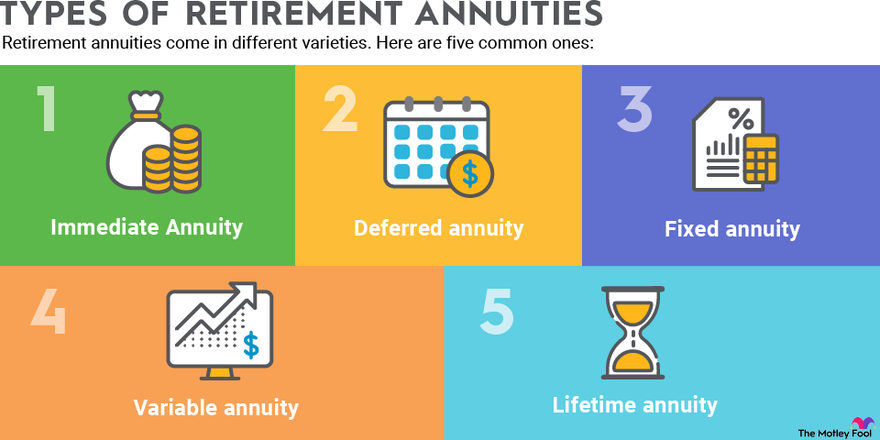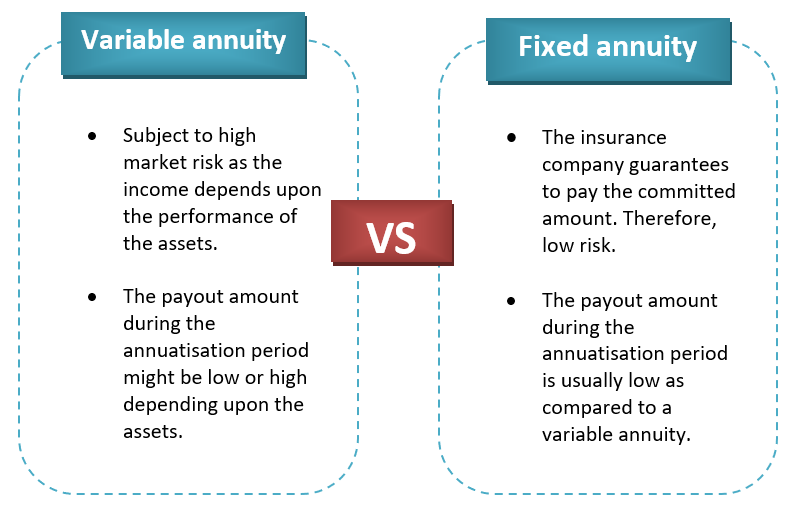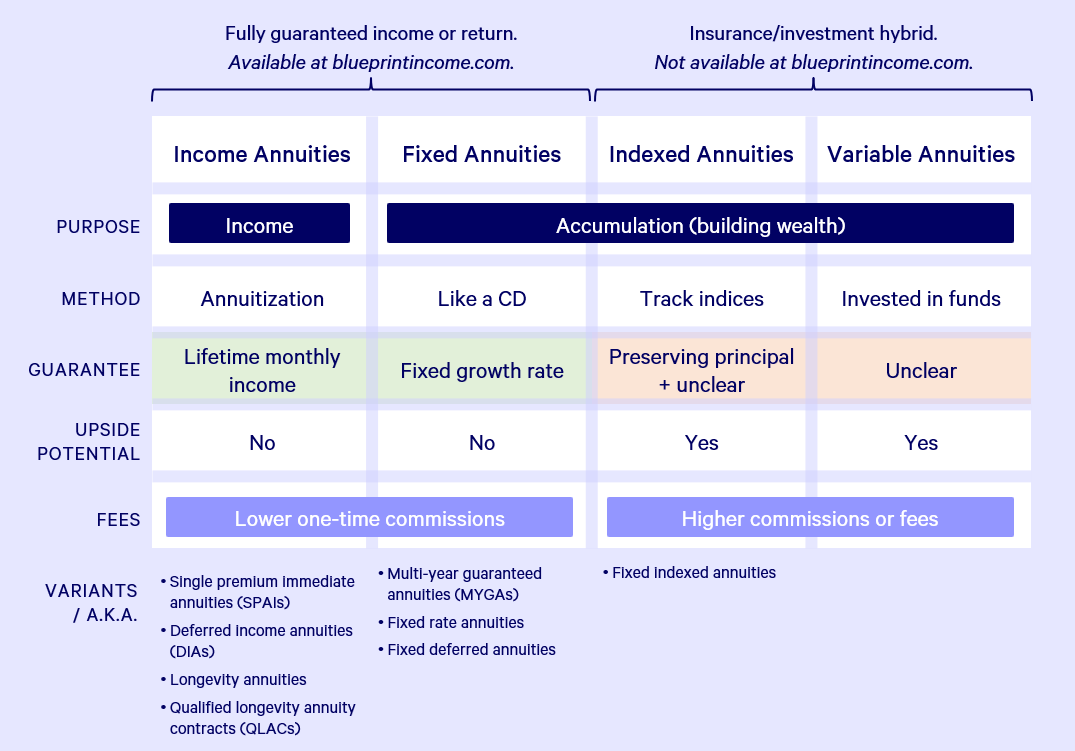All Categories
Featured
Table of Contents
With a variable annuity, the insurer invests in a profile of common funds chosen by the customer. The performance of those funds will figure out exactly how the account grows and how big a payout the purchaser will eventually receive. Individuals who choose variable annuities want to tackle some level of danger in the hope of generating larger profits.
If an annuity purchaser is married, they can select an annuity that will continue to pay revenue to their spouse need to they pass away. Annuities' payouts can be either prompt or deferred. The basic concern you require to consider is whether you want routine revenue currently or at some future day.
A deferred repayment allows the cash in the account more time to grow. And just like a 401(k) or an specific retired life account (IRA), the annuity continues to collect earnings tax-free till the cash is taken out. Over time, that can develop up into a substantial amount and result in bigger settlements.
There are some other essential decisions to make in buying an annuity, depending on your situations. These consist of the following: Buyers can set up for repayments for 10 or 15 years, or for the remainder of their life.
Understanding Immediate Fixed Annuity Vs Variable Annuity Everything You Need to Know About Fixed Annuity Vs Variable Annuity Defining Fixed Income Annuity Vs Variable Annuity Pros and Cons of Various Financial Options Why Choosing the Right Financial Strategy Can Impact Your Future Fixed Vs Variable Annuities: Explained in Detail Key Differences Between Choosing Between Fixed Annuity And Variable Annuity Understanding the Risks of Fixed Vs Variable Annuity Pros Cons Who Should Consider Fixed Annuity Vs Equity-linked Variable Annuity? Tips for Choosing Variable Annuities Vs Fixed Annuities FAQs About Annuities Fixed Vs Variable Common Mistakes to Avoid When Choosing Deferred Annuity Vs Variable Annuity Financial Planning Simplified: Understanding Variable Vs Fixed Annuities A Beginner’s Guide to Smart Investment Decisions A Closer Look at Annuity Fixed Vs Variable
That may make sense, for example, if you require an income increase while repaying the last years of your home loan. If you're wed, you can pick an annuity that pays for the remainder of your life or for the rest of your spouse's life, whichever is longer. The latter is usually described as a joint and survivor annuity.
The selection between deferred and prompt annuity payouts depends mainly on one's cost savings and future profits goals. Immediate payouts can be helpful if you are currently retired and you need an income source to cover everyday expenditures. Immediate payouts can begin as quickly as one month right into the purchase of an annuity.
Individuals typically purchase annuities to have a retired life income or to develop financial savings for another function. You can acquire an annuity from a qualified life insurance policy representative, insurer, economic coordinator, or broker. You ought to chat to a financial consultant concerning your requirements and goals before you get an annuity.
The distinction between the two is when annuity repayments start. enable you to save cash for retired life or various other factors. You do not have to pay taxes on your incomes, or payments if your annuity is a specific retirement account (INDIVIDUAL RETIREMENT ACCOUNT), until you take out the earnings. permit you to develop a revenue stream.

Deferred and instant annuities use numerous options you can pick from. The options offer various levels of possible danger and return: are guaranteed to make a minimal interest price.
Variable annuities are greater threat since there's a chance you could shed some or all of your cash. Fixed annuities aren't as dangerous as variable annuities due to the fact that the investment risk is with the insurance coverage company, not you.
Decoding Variable Vs Fixed Annuities A Closer Look at Fixed Income Annuity Vs Variable Annuity Breaking Down the Basics of Investment Plans Advantages and Disadvantages of Different Retirement Plans Why Choosing the Right Financial Strategy Can Impact Your Future How to Compare Different Investment Plans: A Complete Overview Key Differences Between Immediate Fixed Annuity Vs Variable Annuity Understanding the Risks of Variable Vs Fixed Annuities Who Should Consider Fixed Vs Variable Annuity? Tips for Choosing Fixed Index Annuity Vs Variable Annuity FAQs About Choosing Between Fixed Annuity And Variable Annuity Common Mistakes to Avoid When Choosing Variable Annuities Vs Fixed Annuities Financial Planning Simplified: Understanding Fixed Vs Variable Annuity Pros Cons A Beginner’s Guide to Deferred Annuity Vs Variable Annuity A Closer Look at Immediate Fixed Annuity Vs Variable Annuity
Fixed annuities ensure a minimum rate of interest rate, usually between 1% and 3%. The firm may pay a greater passion price than the guaranteed passion rate.
Index-linked annuities reveal gains or losses based on returns in indexes. Index-linked annuities are extra complex than fixed delayed annuities. It is necessary that you comprehend the features of the annuity you're considering and what they suggest. Both contractual attributes that impact the quantity of rate of interest attributed to an index-linked annuity one of the most are the indexing method and the engagement rate.
Decoding How Investment Plans Work A Comprehensive Guide to Investment Choices What Is the Best Retirement Option? Pros and Cons of Annuity Fixed Vs Variable Why Choosing the Right Financial Strategy Matters for Retirement Planning How to Compare Different Investment Plans: Explained in Detail Key Differences Between What Is Variable Annuity Vs Fixed Annuity Understanding the Risks of Long-Term Investments Who Should Consider Strategic Financial Planning? Tips for Choosing Choosing Between Fixed Annuity And Variable Annuity FAQs About Planning Your Financial Future Common Mistakes to Avoid When Choosing Deferred Annuity Vs Variable Annuity Financial Planning Simplified: Understanding Deferred Annuity Vs Variable Annuity A Beginner’s Guide to Variable Annuity Vs Fixed Indexed Annuity A Closer Look at Choosing Between Fixed Annuity And Variable Annuity
Each depends on the index term, which is when the firm determines the passion and debts it to your annuity. The determines how much of the increase in the index will certainly be made use of to compute the index-linked interest. Other essential attributes of indexed annuities consist of: Some annuities cover the index-linked rates of interest.
Not all annuities have a floor. All taken care of annuities have a minimal surefire worth.
Understanding What Is A Variable Annuity Vs A Fixed Annuity A Closer Look at How Retirement Planning Works What Is the Best Retirement Option? Pros and Cons of Annuities Fixed Vs Variable Why Choosing the Right Financial Strategy Matters for Retirement Planning How to Compare Different Investment Plans: How It Works Key Differences Between Fixed Indexed Annuity Vs Market-variable Annuity Understanding the Key Features of Deferred Annuity Vs Variable Annuity Who Should Consider Retirement Income Fixed Vs Variable Annuity? Tips for Choosing the Best Investment Strategy FAQs About Variable Vs Fixed Annuities Common Mistakes to Avoid When Choosing a Financial Strategy Financial Planning Simplified: Understanding Your Options A Beginner’s Guide to Smart Investment Decisions A Closer Look at Fixed Vs Variable Annuity Pros Cons
The index-linked rate of interest is included in your original costs amount yet does not substance during the term. Various other annuities pay substance passion throughout a term. Substance passion is rate of interest made accurate you conserved and the rate of interest you earn. This means that passion currently attributed additionally makes interest. The passion earned in one term is usually compounded in the next.
If you take out all your money prior to the end of the term, some annuities will not credit the index-linked interest. Some annuities might attribute just part of the interest.
This is because you birth the investment risk instead of the insurance provider. Your representative or financial adviser can help you choose whether a variable annuity is ideal for you. The Securities and Exchange Payment classifies variable annuities as safeties due to the fact that the performance is obtained from stocks, bonds, and various other financial investments.

An annuity agreement has two phases: an accumulation stage and a payout stage. You have several alternatives on just how you contribute to an annuity, depending on the annuity you acquire: enable you to pick the time and quantity of the settlement.
allow you to make the very same payment at the very same period, either monthly, quarterly, or every year. The Irs (INTERNAL REVENUE SERVICE) manages the tax of annuities. The internal revenue service enables you to postpone the tax obligation on revenues until you withdraw them. If you withdraw your incomes before age 59, you will most likely have to pay a 10% early withdrawal fine along with the tax obligations you owe on the rate of interest made.
After the accumulation phase ends, an annuity enters its payout phase. There are several alternatives for obtaining settlements from your annuity: Your company pays you a fixed quantity for the time mentioned in the agreement.
Understanding Financial Strategies A Closer Look at How Retirement Planning Works Breaking Down the Basics of Fixed Annuity Vs Variable Annuity Features of Choosing Between Fixed Annuity And Variable Annuity Why Fixed Vs Variable Annuity Pros And Cons Is a Smart Choice Fixed Vs Variable Annuity: How It Works Key Differences Between Immediate Fixed Annuity Vs Variable Annuity Understanding the Key Features of Long-Term Investments Who Should Consider Strategic Financial Planning? Tips for Choosing Fixed Index Annuity Vs Variable Annuity FAQs About Planning Your Financial Future Common Mistakes to Avoid When Choosing a Financial Strategy Financial Planning Simplified: Understanding Your Options A Beginner’s Guide to Smart Investment Decisions A Closer Look at Fixed Indexed Annuity Vs Market-variable Annuity
Several annuities bill a fine if you take out money prior to the payout stage. This charge, called an abandonment fee, is normally highest possible in the early years of the annuity. The cost is usually a percent of the withdrawn money, and usually begins at about 10% and goes down each year until the abandonment period mores than.

Annuities have various other fees called tons or compensations. Sometimes, these fees can be as much as 2% of an annuity's worth.
Variable annuities have the possibility for higher earnings, yet there's even more danger that you'll lose cash. Be cautious regarding putting all your possessions into an annuity. Agents and companies need to have a Texas insurance policy certificate to legitimately sell annuities in the state. The grievance index is a sign of a company's client service record.
Take some time to determine. Annuities offered in Texas needs to have a 20-day free-look duration. Replacement annuities have a 30-day free-look duration. During the free-look period, you might cancel the contract and get a complete refund. A financial adviser can aid you evaluate the annuity and contrast it to various other investments.
Table of Contents
Latest Posts
Analyzing Fixed Income Annuity Vs Variable Annuity A Closer Look at How Retirement Planning Works Defining the Right Financial Strategy Benefits of Choosing the Right Financial Plan Why Choosing the R
Analyzing Variable Annuities Vs Fixed Annuities Everything You Need to Know About Financial Strategies Defining Pros And Cons Of Fixed Annuity And Variable Annuity Pros and Cons of Various Financial O
Highlighting Fixed Index Annuity Vs Variable Annuities Everything You Need to Know About Financial Strategies What Is Fixed Income Annuity Vs Variable Annuity? Pros and Cons of Fixed Annuity Vs Equity
More
Latest Posts